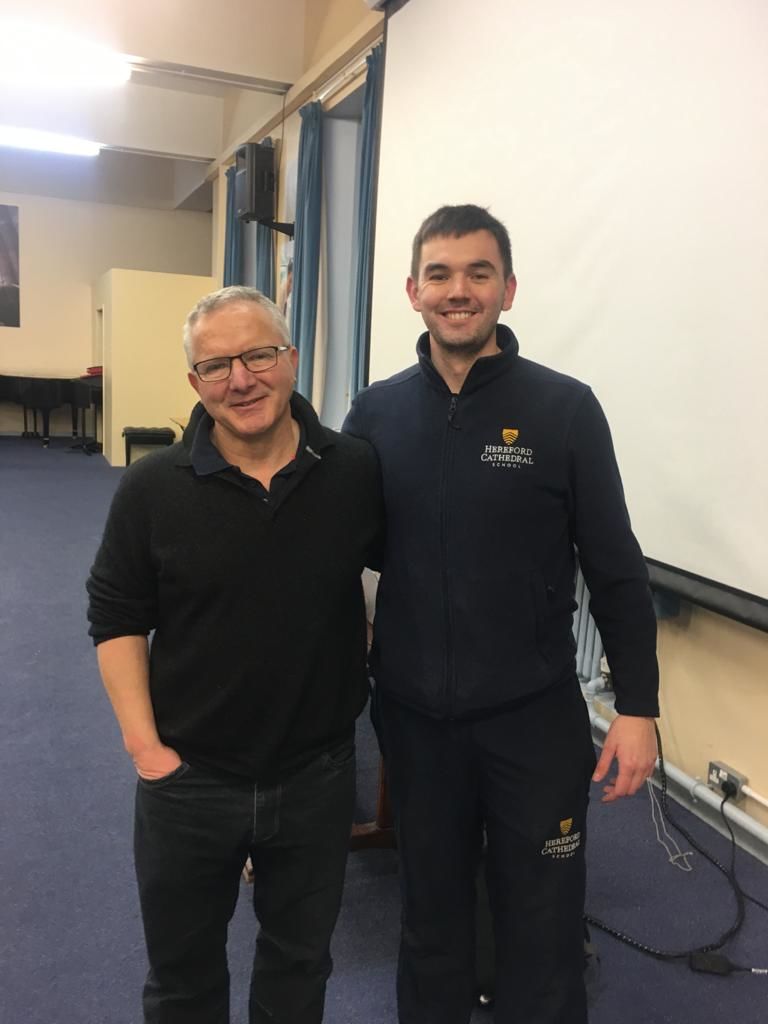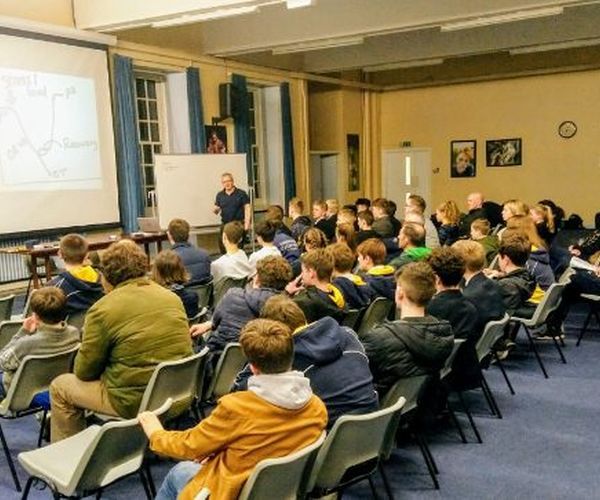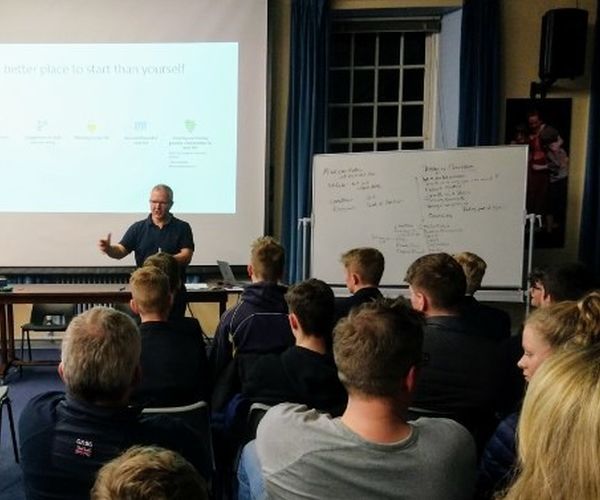Sport psychologist Mark Bellamy OH offers pep talk to HCS rowers

Posted date:
Former Hereford Cathedral School pupil and Sports Performance Psychologist, Mark Bellamy, returned to his old school last week to offer invaluable advice to the School’s rowing students.
Mark’s talk challenged the students to live by their values to meet their potential and develop further as sports-people and human beings. The students learnt the mechanisms and processes behind developing as an athlete and how to leave a lasting legacy within the school and the rowing community that they can be proud of.
Mr Wellburn, Head of Rowing at Hereford Cathedral School, arranged the event to help develop a strong ethos for young athletes wanting to do well in rowing. “Mark’s talk was fascinating. Winter tends to be long and dark, which means that maintaining a positive mindset can be difficult,” said Mr Wellburn. “Mark did a great job of re-invigorating the pupils and helped improve their motivation.”
He added: “Mark has worked with a number of high-performance rowers before, as well as myself and the Hereford Cathedral School Boat Club. His support will help us continue to develop our athletes, our amazing culture and our drive to do well.”


Mark became interested in psychology and lifelong learning from an early age. “Hereford Cathedral School provided a springboard from which to experiment with the options I had for working life. I also played a lot of sport at HCS and specialised in squash,” said Mark.
As a performance psychologist, a lot of Mark’s work has been in sport and has involved supporting three Olympic Games. Mark has also done a lot of work with the British Military and in education, around positive mental health, and he often mentors within businesses. “The scope of my work is wonderfully diverse. A lot of what I do is working with people to get over obstacles and to create a life that is of value to them,” said Mark.
Following a significant car crash in his late 20s, Mark decided to see how far he could get in sport through working with elite athletes, and returned to education to complete a PhD at Manchester Metropolitan University. During that time, he also qualified as a sport psychologist. “This gave me some of the skills needed to embark on a career as a performance psychologist,” said Mark. “I think an interest in what underpins how things happen and how the odds can be swung in my athletes' favour, has always been invaluably interesting.”
